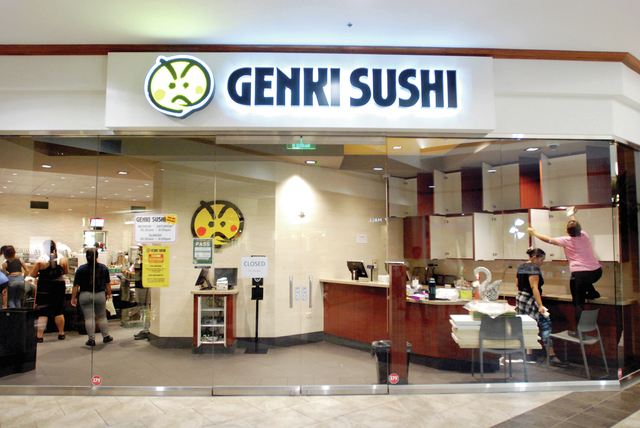MANILA, the Philippines — The Philippine government suspended distribution of seafood thought to be the cause of the hepatitis A outbreak in Hawaii. ADVERTISING MANILA, the Philippines — The Philippine government suspended distribution of seafood thought to be the cause
MANILA, the Philippines — The Philippine government suspended distribution of seafood thought to be the cause of the hepatitis A outbreak in Hawaii.
De Oro Resources Inc. must temporarily suspend distribution of its products while the government does an audit, according to an order by the Philippines’ Department of Agriculture Bureau of Fisheries and Aquatic Resources.
The state Department of Health last month identified frozen scallops served raw at a sushi chain as the probable cause for the outbreak. The scallops are produced by De Oro Resources.
Andres Bojos, director of the agriculture bureau in the Central Visayas region, said officials required the company to test workers, including those who shuck scallops and those who work in their plant. All of them tested negative for hepatitis A, he said.
The Hawaii outbreak has sickened more than 250 people.
Bojos said Tuesday that De Oro Resources remains suspended pending completion of the audit. Aside from scallops, De Oro also exports shrimp.
“We required the operator to subject all their personnel involved in the supply chain from those who shuck the meat of scallops in Masbate to their people in their plant here in Cebu to medical tests, but all of them tested negative for hepatitis A,” Bojos said.
Those who were tested include about 100 personnel at De Oro’s plant in central Cebu province and 29 people who work in its pre-processing plant in Masbate in the eastern Philippines, where the company gets some of its scallops, he said.
But Bojos said a water sample from Masbate was found to have a high level of coliform bacteria, and scallops are not being sourced from that area for the meantime.
There are no known hepatitis A cases in the region from scallop consumption, he said.
Four other companies in the region export scallops aside from De Oro, said Grace Paguinang, a Bureau of Fisheries and Aquatic Resources inspector in Central Visayas. But the seasonal product is not a main export of those companies, whose bigger products are crabs and shrimp. There were no immediately available data on exports volume.
Health officials cleared 10 Genki Sushi stores on Oahu and Kauai to reopen after the chain sanitized those locations, which were involved in the hepatitis A outbreak.
The department ordered Genki Sushi to close the 10 locations last month after linking scallops imported from the Philippines with hepatitis A. The popular restaurants, which serve sushi on conveyor belts, immediately began disinfecting facilities and disposing of their food supply.
Genki Sushi USA Chief Administrative Officer Mary Hansen said serving safe high-quality food is a priority.
The Oahu locations reopened Saturday. The Kauai location will remain closed because of renovations.



